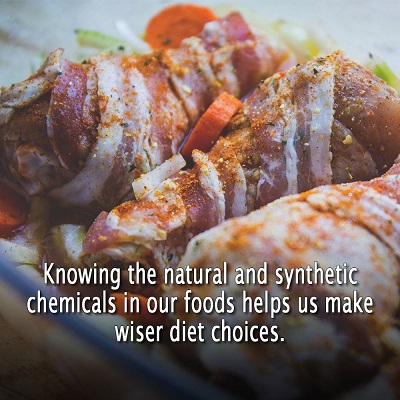 We live in an environment where toxins abound – from the air that we breathe to the water we drink and yes, harmful toxins and chemicals can be found in our food. We are regularly exposed to toxins, and these chemicals pose harmful risks to our health.
We live in an environment where toxins abound – from the air that we breathe to the water we drink and yes, harmful toxins and chemicals can be found in our food. We are regularly exposed to toxins, and these chemicals pose harmful risks to our health.
Many of the foods we eat contain different kinds of toxins, and various organs in our bodies, such as the liver and the kidneys, flush out these toxins. However, high levels of exposure to toxins can lead to a toxic overload, which means that our body has difficulties eliminating toxins because there are too many of them to deal with.
While it is true that completely avoiding toxins in our lives is impossible, there are ways in which we can lower our exposure. The first step is to know about the different toxins found in our foods to make more informed decisions about our diet.
Harmful Toxins Found in Foods
Pesticides
One of the commonly occurring toxins in food, particularly in fresh fruits and vegetables, is pesticides. A pesticide is any chemical substance used in keeping plants and animals free from pests such as weeds, insects, fungicides, and molds.
Much of the fresh produce that makes its way to supermarkets and groceries have varying amounts of pesticide residue. Fruits and vegetables such as strawberries, kale, avocados, asparagus, and sweet corn can be laden with pesticides.
Scientists are still unclear about the full spectrum of effects of pesticides on our health. However, there have been studies linking some pesticides with congenital disabilities and some types of cancers.
BHA and BHT
Butylated Hydroxyanisole (BHA) and Butylated Hydroxytoluene (BHT) are common food preservatives found in processed foods. BHA and BHT can be found in various dry foods to keep them fresher for more extended periods.
While these chemicals are declared safe for human consumption when consumed in limited quantities, a number of studies have identified BHA and BHT as possible carcinogens, as proclaimed by the International Agency for Research on Cancer.
Aside from cancer, BHA and BHT can also cause hormone disruption, leading to smaller sperm quantities in men. The fact that the United Kingdom has banned these two chemicals is very telling of their potentially harmful side effects.
Dioxins
Another type of harmful chemical that can make its way into our food is dioxins. Dioxins are the by-products of various industrial activities, such as metal molding, burning, smelting, and burning of plastics.
These industrial processes release dioxins into the environment, which then leads to exposure of animals and humans. In many cases, the meat that we eat has been exposed to some degree of dioxins.
Dioxins can accumulate in our fatty tissue over time. Long-term exposure to dioxins can cause various health issues such as a weak immune system, reproductive problems, and the endocrine system’s impairment.
BPA
Bisphenol-A or BPA are commonly found in plastic containers and in the can linings of different food and beverage products. BPA may leach into our food when not all the chemical products get sealed into the plastic.
Numerous health problems have been linked to BPA exposure, such as cancer, reproductive issues, behavioral issues, diabetes, and obesity. Even low levels of exposure to BPA can negatively impact hormone production.
Sodium Nitrate/Nitrate
Sodium nitrate is a food preservative commonly found in preserved and processed meats such as bacon, beef jerky, ham, and hotdogs. Sodium nitrate is also found in plants and unregulated water wells.
High levels of exposure to sodium nitrate have been linked to several health problems, including certain types of cancer and heart disease. Nitrate poisoning, which occurs when a person ingests water with high sodium nitrate levels, can cause a blood disorder called methemoglobinemia. Infants that drink formula milk made with water from unregulated wells are at a higher risk of nitrate poisoning.
Acrylamide
Fried starchy food such as french fries, potato chips, and grains often contain acrylamide, a chemical from glucose that forms when processed in high heat.
Experts have yet to conclude if acrylamide is indeed harmful to our health. However, several health agencies and government programs have identified acrylamide as a possible carcinogen chemical to humans.
Recombinant Bovine Growth Hormone (rBGH/rBST)
Cows that have been fed with feeds that contain recombinant bovine growth hormone to increase milk production can pass on the chemical to humans who consume their dairy products. The growth hormones rBGH and rBST are linked to an increased risk of colon cancer among men.
Living completely free from toxins is nearly impossible to do. However, knowing these chemicals that are typically found in the foods that we regularly consume allows us to make wiser choices in our diet.






